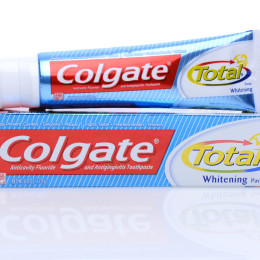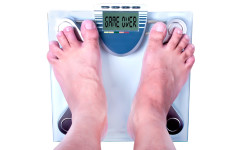Is your toothpaste giving you cancer?

Media swarms on story linking Colgate Total ingredient with cancer.
For more than 20 years, Americans have been brushing with Colgate Total toothpaste, but headlines this week like “Colgate Total toothpaste ingredient linked to cancer” have caused many to throw out their toothpaste in fear of developing cancer. At the root of the issue is the chemical triclosan, an FDA-approved antibacterial ingredient. But how much do you really have to worry?
- So far there have been a handful of studies showing adverse effects of triclosan in mice and rats, but those animals have been dosed with very high concentrations of the chemical. It’s still unclear what effect, if any, the chemical has on humans exposed in low doses since chemicals can affect animals quite differently than they do humans.
- Triclosan does serve a purpose in toothpaste—as an antibacterial agent it helps fight gingivitis, a nasty condition that causes inflamed and bleeding gums and may or may not be linked to heart disease.
- There have been a number of studies supporting triclosan’s safety in toothpaste and its ability to reduce plaque and gingivitis, including a comprehensive review of triclosan studies published last year by researchers at the University of Manchester School of Dentistry.
The FDA is looking more closely into the ingredient and is scheduled to rule on triclosan in 2016. For now, it still says there isn’t evidence to recommend consumers stop using triclosan-containing products. (Triclosan is also used in soaps, deodorants, detergent, etc.) While you might start having health problems if you start eating tubes of toothpaste or bottles of soap, it probably won’t be from triclosan.





